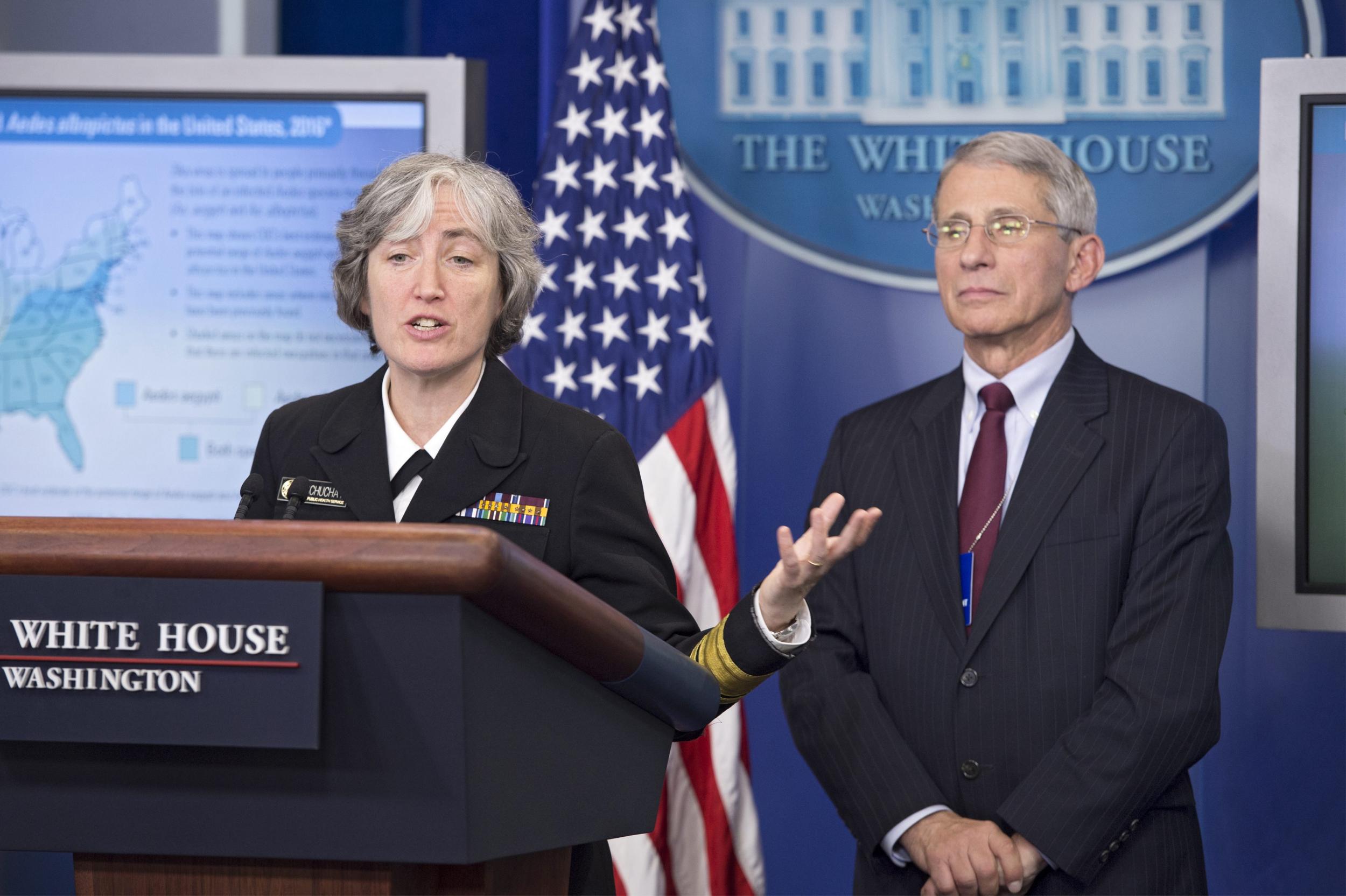Zika virus is 'scarier than we initially thought', say US health officials
'Most of what we've learned is not reassuring' - Dr Anne Schuchat

Your support helps us to tell the story
From reproductive rights to climate change to Big Tech, The Independent is on the ground when the story is developing. Whether it's investigating the financials of Elon Musk's pro-Trump PAC or producing our latest documentary, 'The A Word', which shines a light on the American women fighting for reproductive rights, we know how important it is to parse out the facts from the messaging.
At such a critical moment in US history, we need reporters on the ground. Your donation allows us to keep sending journalists to speak to both sides of the story.
The Independent is trusted by Americans across the entire political spectrum. And unlike many other quality news outlets, we choose not to lock Americans out of our reporting and analysis with paywalls. We believe quality journalism should be available to everyone, paid for by those who can afford it.
Your support makes all the difference.The Zika virus more of a threat than previously thought, US public health officials have warned.
Speaking at a White House press conference, Dr Anne Schuchat from the Centre for Disease Control and Prevention (CDC) said there was potential for the virus to spread to more US states than experts first believed.
Dr Schuchat told reporters: "Most of what we've learned is not reassuring.
"Everything we look at with this virus seems to be a bit scarier than we initially thought."
According to the latest CDC report, there have been 346 cases of Zika confirmed in the continental US, all diagnosed after the carrier had recently visited a Zika-affected country.
Of these cases, 32 were pregnant women and seven were sexually transmitted.
The Zika virus is linked with a birth defect known as microcephaly, which sees children born with abnormally small brains as well as a neurological syndrome which can cause paralysis.
Zika is spread to people primarily through the bite of an infected Aedes species mosquito.
This species of mosquito is currently present in 30 US states, not 12 as has been previously thought. There is currently no known cure or vaccine.
Before the weather warms up, President Obama has asked the US Congress for $1.9 billion (£1.25 billion) to deal specifically with the crisis.
Meanwhile the government has used the money remaining from the Ebola virus fund which amounted to $589 million.
The virus has already spread across Latin America and the Caribbean.
Dr Anthony Fauci from the National Institute of Allergy and Infectious Diseases said: "This is a very unusual virus that we can't pretend to know everything about.
"I'm not an alarmist... but the more we learn about the neurological aspects, the more we look around and say this is very serious.
"What I've done is take money from other areas of non-Zika research to start. We couldn't just stop and wait for the money.
"When the president asked for $1.9 billion, we needed $1.9 billion," he said.
Join our commenting forum
Join thought-provoking conversations, follow other Independent readers and see their replies
Comments